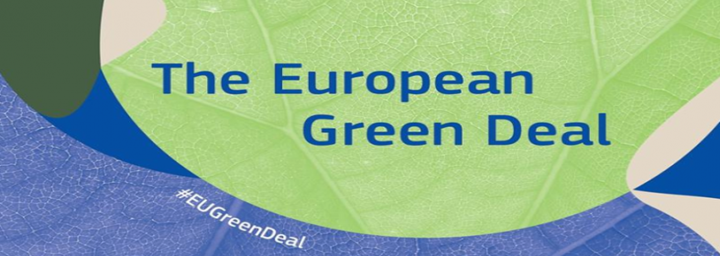Climate change and environmental degradation are an existential threat to Europe and the world. To overcome these challenges, the European Green Deal will transform the EU into a modern, resource-efficient and competitive economy, ensuring:
- no net emissions of greenhouse gases by 2050
- economic growth decoupled from resource use
On June 22, 2022, the Commission adopted pioneering proposals to restore damaged ecosystems and bring nature back across Europe, from agricultural land and seas, to forests and urban environments. The Commission also proposes to reduce the use and risk of chemical pesticides by 50% by 2030. These are the flagship legislative proposals to follow the Biodiversity and Farm to Fork Strategies and will help ensure the resilience and security of food supply in the EU and across the world.
The proposal for a Nature Restoration Law is a key step in avoiding ecosystem collapse and preventing the worst impacts of climate change and biodiversity loss.
The Commission proposed the first-ever legislation that explicitly targets the restoration of Europe’s nature, to repair the 80% of European habitats that are in poor condition, and to bring back nature to all ecosystems, from forest and agricultural land to marine, freshwater and urban ecosystems. Under this proposal for a Nature Restoration Law, legally binding targets for nature restoration in different ecosystems will apply to every Member State, complementing existing laws. The aim is to cover at least 20% of the EU’s land and sea areas by 2030 with nature restoration measures, and eventually extend these to all ecosystems in need of restoration by 2050.
The European Green Deal will improve the well-being and health of citizens and future generations by providing:
- Fresh Water, Clean Air, Healthy Soil & Biodiversity
- Renovated, energy efficient buildings
- Healthy & affordable food
- Longer lasting products that can be repaired, recycled & reused
Reference:
https://ec.europa.eu/info/strategy/priorities-2019-2024/european-green-deal_en
The floating traffic jams off ports. The multiplying costs of moving freight. The resulting shortages of goods. All of this had seemed like an unpleasant memory confined to the COVID-19 pandemic. But no such luck!
An ocean container capacity crunch has hit global trade just as peak shipping season starts, with freight spot rates up some 30% over the past few weeks and heading higher.
The first joint Europe-wide assessment of the drivers and impact of chemical pollution by the European Environment Agency (EEA) and the European Chemicals Agency (ECHA) has concluded that, despite progress in some areas, “more work is still needed to reduce the impact of harmful substances on human health and the environment”. Key findings include:
The severe drought which has forced the Panama Canal, one of the world’s busiest trade passages, to limit daily crossings could impact global supply chains during a period of high demand.
In the early hours of March 26, the Singapore-flagged ship Dali, loaded with 5,000 containers, slammed into Baltimore’s Francis Scott Key Bridge, causing the 1.6-mile (2.5-kilometer) bridge to collapse in a matter of seconds. The Dali was departing for Colombo when the disaster struck. Initial fears were confirmed that half a dozen people lost their lives in the accident.
The pharmaceutical and biotechnology industries constantly seek innovative methods to enhance product stability, solubility, bioavailability and ease of use. Within this realm, CDMOs [Contract Development & Manufacturing Organizations] serve as invaluable partners in the development and production of high-quality drug products.
Chinese New Year 2024 is upon us, disrupting logistics from Asia starting Feb 10th. This event is expected to impact global shipping until Feb 21. Freight rates from Asia has skyrocketed with rates to the US surging by 3.5X and Europe by 6X.
Amid ongoing Red Sea diversions by shipping giants like Maersk, CMA, logistics managers are globally confronting a dual challenge of escalating ocean and air freight prices alongside cargo disruptions due to
Why will CM be the next generation on quality?
